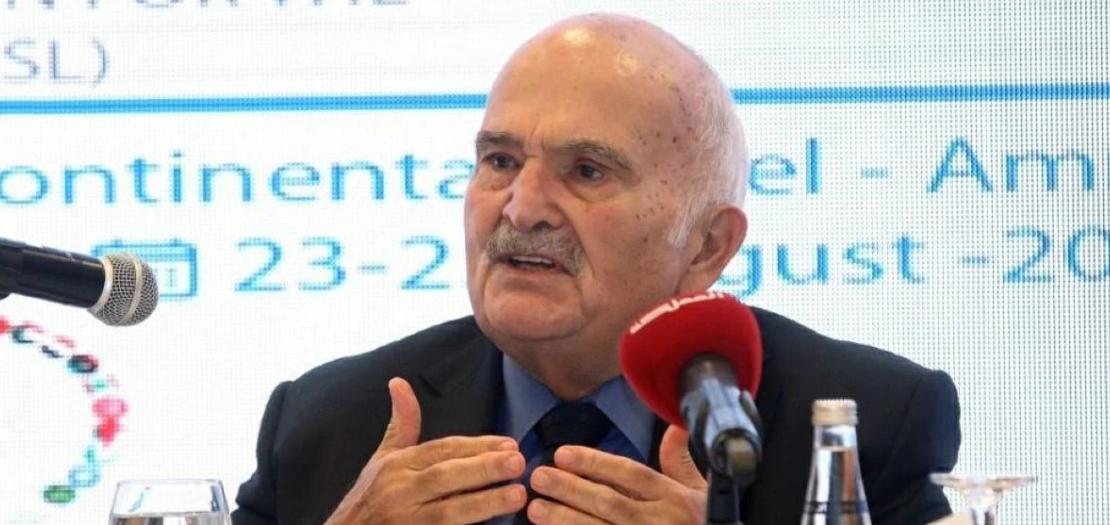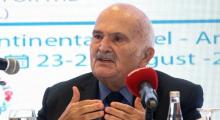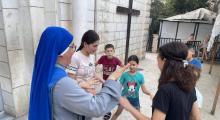Issued by the Catholic Center for Studies and Media - Jordan. Editor-in-chief Fr. Rif'at Bader - موقع أبونا abouna.org

Speaking at the 4th Jordanian Women Physicians Conference: Unlocking Future Healthcare Horizons, held under his patronage, HRH Prince El Hassan has delivered a poignant speech on the state of healthcare, society, and survival in Palestine, particularly in Gaza. His speech framed the devastation as not only a humanitarian emergency but as part of a wider system of deliberate erasure.
“Jordan has not been a bystander,” Prince El Hassan reminded the audience, noting that the Kingdom has long borne the consequences of regional wars, absorbing wave after wave of refugees while shouldering social and economic strain. Yet, he emphasized, what is happening in Gaza today is beyond a conventional crisis.
Healthcare system on the brink of extinction
Prince El Hassan described Gaza’s health infrastructure in 2025 as a “broken shelf”, saying that “hospitals and clinics deliberately targeted, medicines blocked, and health workers themselves killed.”
“Without protein or enough calories, bones do not heal, burns do not heal, and infections spread. Wounds that would have been treatable anywhere, becomes there a death sentence,” the Prince said in his speech.
These observations are tragically mirrored by UN data which says that, by mid-2025, over 59,219 Palestinians had been killed, of whom 70 per cent were women and children, alongside 118,491 injuries.
Highlighting the severe damage to Gaza’s health system, the UN said that, by late 2024, more than half of hospitals (19 out of 36) in the war-torn Strip had ceased operations, and thousands of health workers had lost their lives.
Quoting UN Special Rapporteur Francesca Albanese, Prince El Hassan underlined that the world is not just witnessing genocide but also “infanticide, homicide, ecocide, culturicide, scholasticide, etc...”
Gaza as a “laboratory”
The Prince said, “What happens in Gaza does not remain in Gaza.”
Referring to journalist Antony Loewenstein’s book “The Palestine Laboratory,” Prince El Hassan described in his speech the occupied Palestinian territories as a “laboratory of subjugation.”
Loewenstein’s work details how technologies of control, drones, spyware, biometric ID systems, and advanced surveillance infrastructure, are first tested on Palestinians before being sold abroad as “battle-tested” solutions. In this sense, Gaza is not only a humanitarian tragedy but also a global marketplace for repression, where techniques of domination are refined under conditions of occupation and then exported to governments and private actors worldwide.







